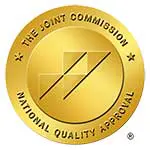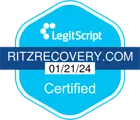Opioid Addiction in Los Angeles
In Los Angeles, amidst its vibrant hustle, Ritz Recovery offers a nurturing haven for those entangled in opioid addiction. We understand the deep-rooted challenges of this journey and provide a personalized, luxurious setting where healing begins with empathy and innovative care. Our team is dedicated to guiding each individual through their unique path to recovery, equipped with holistic therapies and unwavering support. At Ritz Recovery, you’re not just treated; you’re understood, valued, and empowered to rediscover a life full of possibilities, free from addiction.

Understanding Opioid Addiction
The United States is facing a worsening crisis of opioid addiction, with an increasing number of individuals falling victim to addiction, whether through legal prescriptions or illicit sources. This addiction has severe consequences, including overdoses, unemployment, and financial ruin.
However, there is hope. By providing support, allocating resources, and promoting treatment access, we can assist those struggling with opioid addiction. Implementing preventive measures and raising awareness about the dangers of opioids can also help combat this crisis. Together, we can make a difference in overcoming opioid addiction.
What Is An Opioid?
Opioids are a class of drugs primarily prescribed for pain relief. They are commonly used to treat moderate to severe pain and can also be prescribed for conditions like anxiety or coughing. By binding to opioid receptors in the brain, opioids reduce the perception of pain.
While opioids are usually prescribed by medical professionals, they can also be obtained illicitly. Certain opioids, like heroin, have high addiction potential and pose risks of overdose. Others, such as fentanyl, are extremely potent and can be fatal even in small quantities.
Factors Contributing to Opioid Addiction
The prevalence of opioid addiction has been on the rise, with millions of individuals affected. Several factors can contribute to the development of opioid addiction.
Susceptibility Factors
Certain individuals may be more vulnerable to opioid addiction due to genetic predisposition, family history of addiction, or past trauma. Additionally, individuals experiencing chronic pain may face an increased risk of developing opioid addiction.
Chronic Pain
Although opioid addiction is often associated with recreational drug abuse, chronic pain is a significant risk factor for developing an addiction to opioids. Individuals with chronic pain are commonly prescribed opioid painkillers to manage their condition. While these medications can be effective, they also carry a high risk of addiction. It is crucial for those with chronic pain to discuss the potential risks of opioid painkillers with their healthcare provider.
Mental Health Disorders
The presence of mental health disorders is strongly associated with opioid addiction. People with mental health disorders may turn to opioids as a means of self-medication or to cope with stress. The co-occurrence of mental health disorders and substance use disorder further elevates the risk of opioid addiction.
Poverty
Poverty plays a significant role in the opioid addiction epidemic. Individuals facing financial hardships are more prone to using drugs as a coping mechanism. Poverty can lead to opioid addiction in various ways, including the pursuit of temporary relief from stress or resorting to illegal drugs due to limited access to legal pain medication.
Trauma
The link between trauma and addiction is well-established. Traumatic experiences can contribute to addiction through changes in the brain, the triggering of negative emotions and maladaptive coping strategies, and the creation of a sense of isolation and hopelessness that drives substance abuse.
Understanding these contributing factors is crucial for addressing opioid addiction and developing effective prevention and treatment strategies.
Signs and Symptoms of Opioid Addiction
Opioid addiction can manifest through various symptoms, although they can differ among individuals. Recognizing these common signs can be crucial in identifying opioid addiction:
- Taking opioids in larger amounts or for a longer duration than prescribed or intended
- Experiencing intense cravings for opioids
- Feeling unable to control or reduce opioid use
- Spending a significant amount of time obtaining opioids or recovering from their effects
- Neglecting important activities and responsibilities due to opioid use
- Continuing to use opioids despite experiencing negative consequences
If you or someone you know displays these symptoms, seeking assistance from a healthcare professional is essential. Opioid addiction is a serious condition that often requires professional treatment to overcome.
Consequences of Opioid Addiction
The impact of opioid addiction extends beyond individuals, affecting families, communities, and society as a whole.
Opioid addiction poses a significant public health concern. According to the Centers for Disease Control and Prevention (CDC), opioid-related overdose deaths have quadrupled since 1999. In 2017 alone, there were over 47,000 deaths attributed to opioids, and the CDC estimates that the economic cost of the opioid epidemic reached $78.5 billion that year.
The physical effects of opioid addiction can be wide-ranging and include:
- Excessive drowsiness
- Nausea and vomiting
- Physical dependence
- Respiratory depression
- Dizziness
- Constipation
- Muscle rigidity
- Irregular heart rhythms
It is crucial to address opioid addiction promptly, as it not only affects individuals but also has profound consequences for families, communities, and society as a whole. Seeking professional help and support is vital for recovery and mitigating the impact of this widespread issue.
Treatment Of Opioid Addiction
Taking the first step towards recovery and committing to the journey is crucial. Numerous resources are available to support you along the way, making it essential to seek help. With proper treatment, you can overcome addiction and embark on a healthy, productive life.
Understanding these underlying factors can help in developing comprehensive approaches to address meth addiction and provide appropriate support to individuals seeking recovery.
Detoxification
Detoxification is the initial and essential phase in opioid addiction treatment. It involves safely eliminating the drug from your body and managing withdrawal symptoms. Detox is crucial for reducing the risk of relapse and the potential dangers of overdose and fatality.
Various approaches can be employed during detox, including medication-assisted treatment, therapy, and participation in support groups. Finding a detox program that suits your needs, supported by a professional team and a network of support, will set you on the path to recovery.
Medication
Medication plays a significant role in treating opioid addiction and offers distinct benefits and risks. Commonly used medications include buprenorphine, methadone, and naltrexone. Methadone, a long-acting opioid, helps reduce withdrawal symptoms and cravings. Buprenorphine, a partial opioid agonist, also alleviates withdrawal symptoms and cravings. Naltrexone, an opioid antagonist, blocks the effects of opioids, making it challenging to experience a high.
Counseling and Behavioral Therapies
Counseling and behavioral therapies help patients understand the root causes of their addiction and develop healthy coping mechanisms. These therapeutic approaches assist individuals in building a support system comprising understanding friends and family who can provide encouragement and assistance during challenging times.
Residential Treatment
Residential treatment offers individuals struggling with opioid addiction a structured and supportive environment for recovery. In a residential treatment setting, individuals have access to around-the-clock care from medical and mental health professionals. This comprehensive care is crucial for those facing difficulties in overcoming addiction.
By utilizing a combination of detoxification, medication, counseling, behavioral therapies, and residential treatment, individuals can effectively address their opioid addiction, regain control of their lives, and move towards a brighter and healthier future.
Get Help Today
Schedule a confidential assessment with our admissions team.





